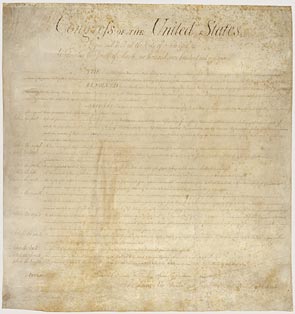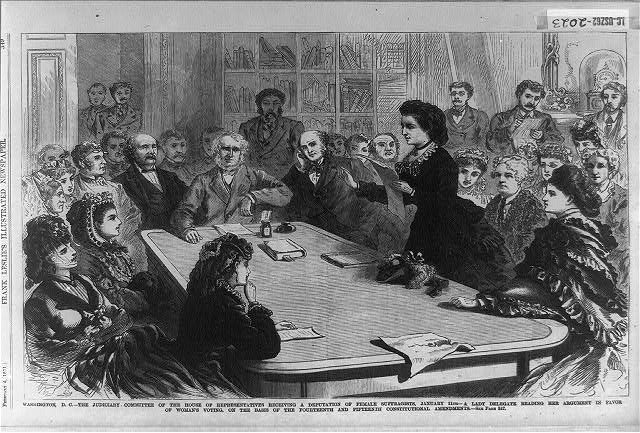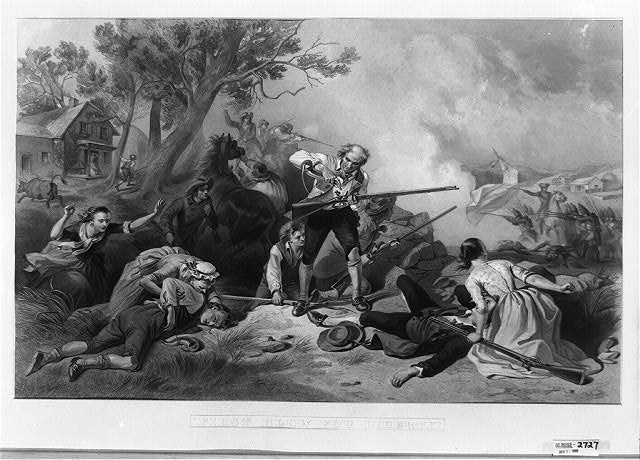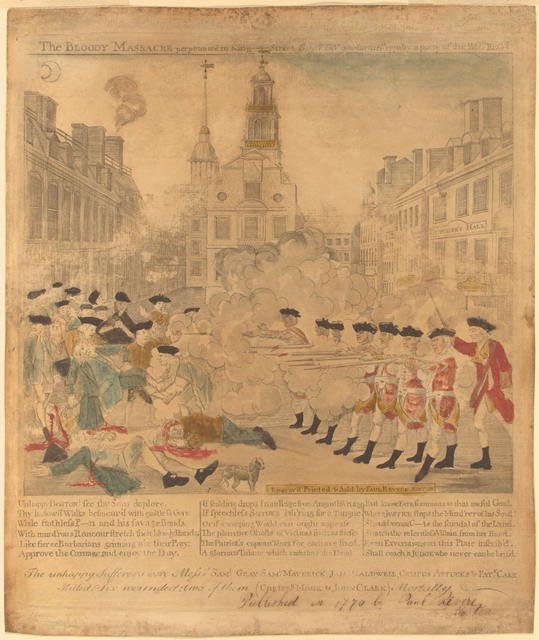THE BILL OF RIGHTS
Amendments 1-10 of the Constitution
The Original Text

The Conventions of a number of the States having, at the time of adopting the Constitution, expressed a desire, in order to prevent misconstruction or abuse of its powers, that further declaratory and restrictive clauses should be added, and as extending the ground of public confidence in the Government will best insure the beneficent ends of its institution;
Resolved, by the Senate and House of Representatives of the United States of America, in Congress assembled, two-thirds of both Houses concurring, that the following articles be proposed to the Legislatures of the several States, as amendments to the Constitution of the United States; all or any of which articles, when ratified by three-fourths of the said Legislatures, to be valid to all intents and purposes as part of the said Constitution, namely:
Amendment I:
Freedom of Speech, Press, Religion,
and to Peaceable Assemble
Congress shall make no law respecting an establishment of religion, or prohibiting the free exercise thereof; or abridging the freedom of speech, or of the press; or the right of the people peaceably to assemble, and to petition the government for a redress of grievances.
 What does this mean?
What does this mean?
Amendment II:
Right to Keep and Bare Arms
A well regulated militia, being necessary to the security of a free state, the right of the people to keep and bear arms, shall not be infringed.
 What does this mean?
What does this mean?
Amendment III:
Quartering of Troops

No soldier shall, in time of peace be quartered in any house, without the consent of the owner, nor in time of war, but in a manner to be prescribed by law.
What does this mean?
Amendment IV:
Unreasonable Search and Seizure
The right of the people to be secure in their persons, houses, papers, and effects, against unreasonable searches and seizures, shall not be violated, and no warrants shall issue, but upon probable cause, supported by oath or affirmation, and particularly describing the place to be searched, and the persons or things to be seized.
What does this mean?
Amendment V:
Due Process, Double Jeopardy, and Privacy
No person shall be held to answer for a capital, or otherwise infamous crime, unless on a presentment or indictment of a grand jury, except in cases arising in the land or naval forces, or in the militia, when in actual service in time of war or public danger; nor shall any person be subject for the same offense to be twice put in jeopardy of life or limb; nor shall be compelled in any criminal case to be a witness against himself, nor be deprived of life, liberty, or property, without due process of law; nor shall private property be taken for public use, without just compensation.
What does this mean?
Amendment VI:
Rights of the Accused
In all criminal prosecutions, the accused shall enjoy the right to a speedy and public trial, by an impartial jury of the state and district wherein the crime shall have been committed, which district shall have been previously ascertained by law, and to be informed of the nature and cause of the accusation; to be confronted with the witnesses against him; to have compulsory process for obtaining witnesses in his favor, and to have the assistance of counsel for his defense.
What does this mean?
Amendment VII:
Civil Right to a Jury
In suits at common law, where the value in controversy shall exceed twenty dollars, the right of trial by jury shall be preserved, and no fact tried by a jury, shall be otherwise reexamined in any court of the United States, than according to the rules of the common law.
What does this mean?
Amendment VIII:
Cruel and Unusual Punishment and Excessive Bail
Excessive bail shall not be required, nor excessive fines imposed, nor cruel and unusual punishments inflicted.
What does this mean?
Amendment IX:
Rights Not Addressed
The enumeration in the Constitution, of certain rights, shall not be construed to deny or disparage others retained by the people.
What does this mean?
Amendment X:
Powers of the State and People
The powers not delegated to the United States by the Constitution, nor prohibited by it to the states, are reserved to the states respectively, or to the people.

What does this mean?
Click here if you would like to read more information about the US Bill of Rights.
Information on Picture Usage and Ownership
Click here to send me an E-mail!




